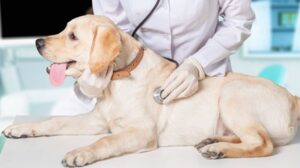
Maintaining Healthy Teeth: Dental Care Tips for Dogs
It is important that our four-legged companions also have healthy teeth. Dogs need to have their teeth cleaned regularly. The teeth are used not only for eating but also as weapons, hunting tools, and to scare away enemies. Neglecting dental care in dogs can cause severe illness.
Both humans and dogs require dental care. Otherwise, caries, gingivitis and periodontitis are likely to occur. These tips will help you brush your dog’s dental health.
Dental care for dogs: why is it so important?
Healthy teeth is essential to eating. The teeth of your four-legged companion can cause a number of problems. Unchewed food does not provide enough nutrients to the dog, but also can cause gastrointestinal problems. If dental problems are not treated and recognized, teeth may fall out or become infected.
Signs of unhealthy tooth in dogs
Let you four-legged companion “show his teeth” frequently. Visual signs of tooth decay include:
* Yellowish-brownish deposits.
* Bright red gums
* Bleeding gums
* Excessive saliva production
Alterations in eating habits or bad breath can also be signs of progressive dentition.
Dental care for dogs: Tips to maintain healthy teeth
From puppyhood onwards, dental care should become a routine. You can brush your dog’s teeth with the same toothbrush and toothpaste you use for yourself. Ask your veterinarian how to brush the teeth of your animal companion.
Specialist shops sell toothbrushes of all sizes and shapes, including finger toothbrushes and toothpaste for dogs. Also, toothpaste for dogs comes in different flavors. What about fish or chicken? Dental care for your dog is much more enjoyable.
Support dental health in dogs by feeding the right diet
Dental tartar and plaque, which are precursors to periodontitis and caries, can be prevented partially with the right diet. If you are buying industrially produced feeds, be sure to check the ingredient list. If it contains “glucose,” “molasses,” and/or “sugar”, then stay away! Sugar and other sugary substances are poisonous to dogs’ dental health.
If you do not barf on your dog, then it is safe. Consult your veterinarian first to determine the nutrients and their composition that your dog needs. Then, you can adjust his diet with raw meats and appropriate additives. By tearing up the meat pieces with your teeth, you are removing plaques. Chewing toys and special chew sticks are helpful for young dogs who are changing their teeth. This can be used to massage the gums, and also help prevent plaque.

